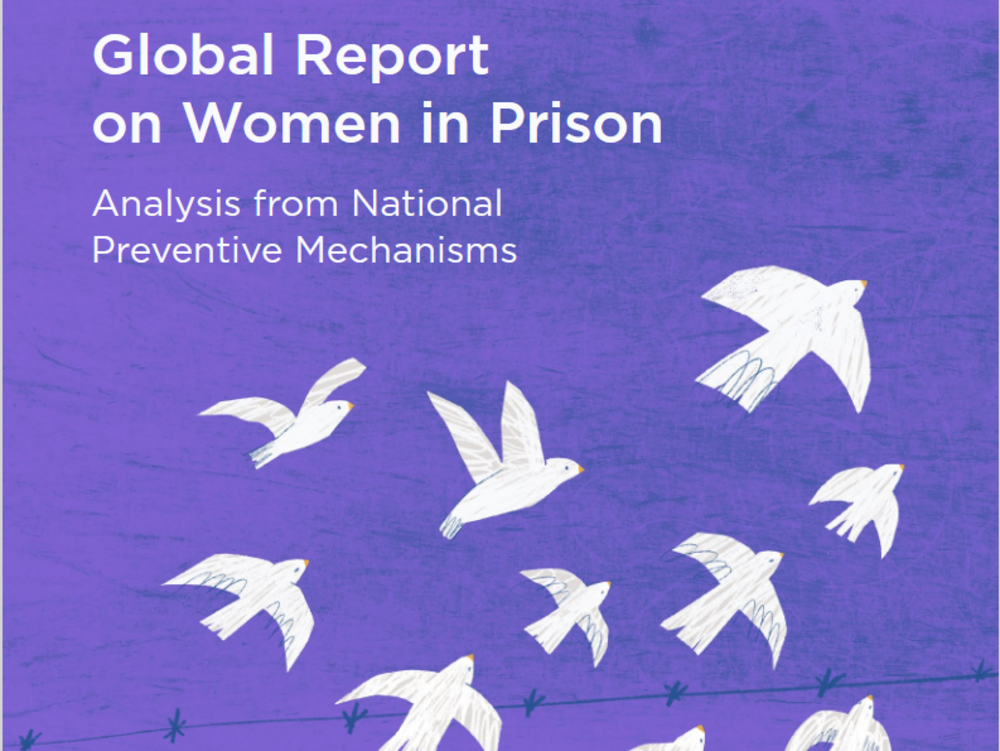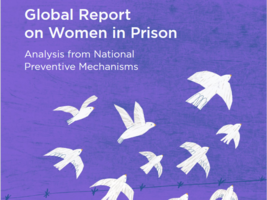The National Preventive Mechanism (NPM) of Slovenia joined national preventive mechanisms from 45 countries and participated in the preparation of a global report on women in prisons. This report, presented today, 12 December 2024, by the Association for the Prevention of Torture (APT) from Geneva, brings groundbreaking findings.
The report highlights the significant challenges and systemic discrimination faced by women in prisons around the world. At the same time, it calls for urgent reforms and greater use of alternative forms of deprivation of liberty. It is based on analyses of national prevention mechanisms from Africa, Asia-Pacific, Europe, and Latin America, making it the first global analysis of women in prison based on the findings of these independent bodies that prevent torture and ill-treatment in all places where people are deprived of liberty.
The Global Report on Women in Prison: An Analysis of National Prevention Mechanisms reveals that despite representing a smaller but growing proportion of the world's prison population, women are often neglected and discriminated against. The report deals with several topics, including the increased risk of ill-treatment, the neglect of specific needs, and cross-sectoral discrimination.
It notes that women in prison face humiliating and invasive body searches, the inappropriate use of solitary confinement, and restraints, with particularly severe consequences for vulnerable groups such as pregnant women, members of the LGBTIQ+ community, indigenous peoples, and those with mental health problems. Their access to healthcare, hygiene aids, and mental health services is lacking, which does not meet international standards, further increasing women's vulnerability. Foreigners, representatives of indigenous peoples, older women, representatives of the LGBTIQ+ community, pregnant women, and women from different ethnic and racial backgrounds are exposed to special – and sometimes greater – risks of abuse and discrimination.
Since the adoption of the United Nations Bangkok Rules in 2010, which address the needs of women in the criminal justice system, significant improvements have been made, but much work remains to be done to fully implement them.
The report offers broad recommendations to promote systemic change for women in prison and highlights the key role of national prevention mechanisms. Among the recommendations are:
- Introducing gender-sensitive alternatives to imprisonment, particularly for non-violent offences.
- Replacement of harmful or degrading practices such as solitary confinement, use of coercive means, and invasive body searches.
- Provision of gender-specific health care and mental health support.
- Strengthening family contacts with more flexible options for visits and communication.
- Improving training in gender-sensitive approaches.
- Addressing the special needs of vulnerable groups such as pregnant women, LGBTIQ+ women, indigenous women, and foreign women.
The report also includes examples of good practices from different countries. The global report is accompanied by national reports prepared in 46 countries, including Slovenia.
The global report, which aims to be a tool to stimulate an evidence-based debate on the impact of imprisonment on women, to improve treatment and increase the use of gender-sensitive alternatives to detention and imprisonment, covers several topics. The NPM of Slovenia chose two topics for cooperation in the preparation of the global report, namely the implementation of security and personal checks of imprisoned persons (women) and visitors [1] and access to mental health. Based on this, on 21 September 2023, the NPM made a thematic visit to the Penitentiary Institute of the Ig prison (Institute), where he checked the implementation of security and personal checks of inmates (women) and female visitors. The members of the DPM talked with the management and inspected the room intended for carrying out personal examinations and the special room for isolation. On 25 September 2023, a thematic visit related to access to mental health was carried out by a doctor – an expert who works with the NPM on the basis of a contract. During the visit, she found that imprisoned people have adequate access to mental health, which the NPM assessed as positive. More details regarding the NPM's recommendations and responses to them can be seen in the table.
More about the global report and Slovenian contributions.
The global report was created with the support of the Canadian government and the city of Geneva.

